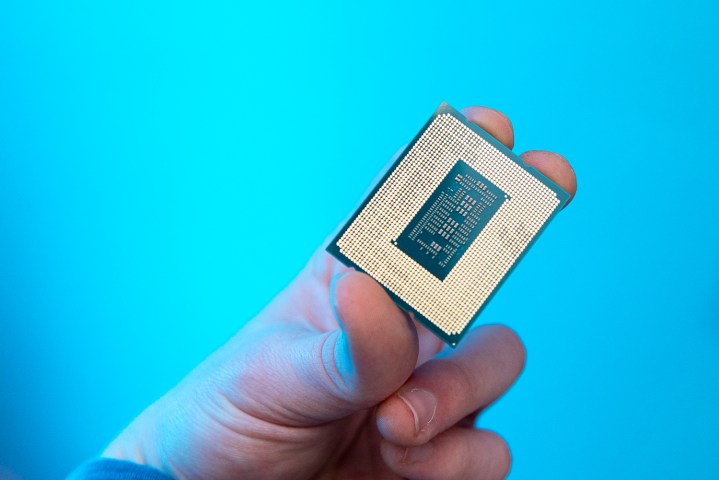
In recent weeks, we have seen an increasing number of reports of instability on high-end Intel processors such as the Core i9-14900K. Asus has released a BIOS update for its Z790 motherboards aimed at addressing the issue, but it comes with a performance loss of over 9% in some workloads.
The latest BIOS update from Asus includes the Intel baseline profile. This profile disables various optimizations that are automatically applied to Asus Z790 motherboards and runs high-end Intel chips within Intel’s specified limits. Hardwareluxx tested the new profile with the Core i9-14900K and found that the CPU ran about 9% slower in multiple tests.
In Cinebench R23, for example, the German publication found that Intel’s baseline profile dropped performance by 9%. In Y-Cruncher, a benchmark that calculates the Pi, the performance drop was 11%. Even games were affected, with Starfield, Shadow of the Tomb Raider, and F1 2023 showing an 8% performance drop when tested at 720p (these differences should disappear at higher resolutions).

Get our weekly breakdown of the technology behind PC gaming
One of the main reasons behind the instability, it seems, is the unlimited power budget available to high-end Intel processors on some motherboards. With the proper BIOS settings, the maximum turbo power available to a chip like the Core i9-14900K is 4,095 Watts. Your CPU will never draw that much power, but such a high limit allows the chip to draw as much power as it needs for short bursts, even if it results in a crash.
These settings follow some BIOS tweaks we’ve seen experts recommend over the past few days. Asus apparently released the BIOS update in response to Intel’s investigation into the problem, but it’s unclear if other motherboard vendors will follow suit.

The performance drop only applies if you used the various enhancements available on Asus Z790 motherboards. However, you may have been using these enhancements without even knowing it. By default, Asus automatically applies whatever tweaks it deems best for your CPU within the BIOS, possibly causing instability. If you haven’t messed with your BIOS settings, there’s a good chance your CPU will run slower with the Intel Baseline profile applied.
Fortunately, this shouldn’t affect game performance too much. The performance drop is mostly seen in other applications, while the instability this BIOS update is dealing with is mostly seen in games. It’s not an ideal trade-off regardless, but hopefully it addresses the crashing issues for Core i9-14900K owners.
It’s not yet clear what the scope of the problem is with Intel’s high-end processors. Right now, it looks like the Core i9-13900K and Core i9-14900K are the main culprits, with the Core i7-13700K and Core i7-14700K being less affected. Only some of these chips have instability issues, while other Intel CPUs should have no problems.
Editors’ recommendations





0 Comments